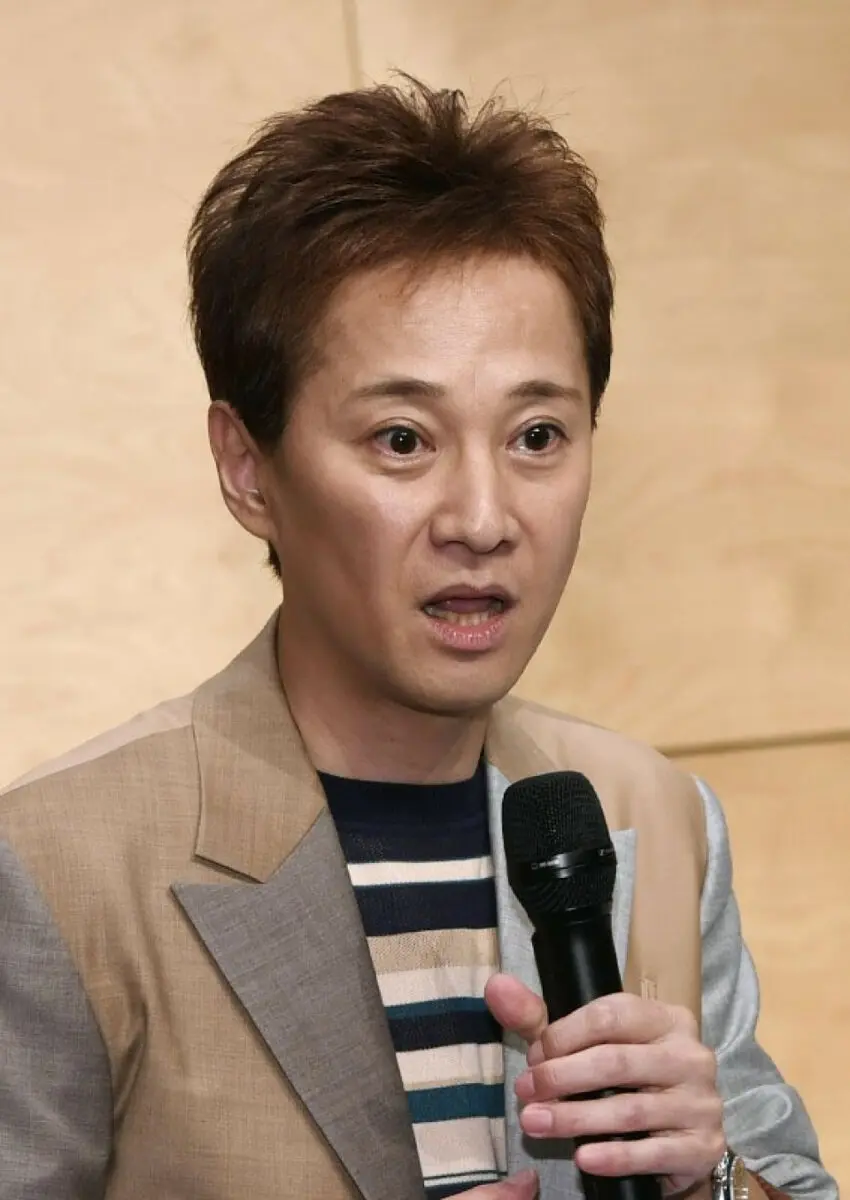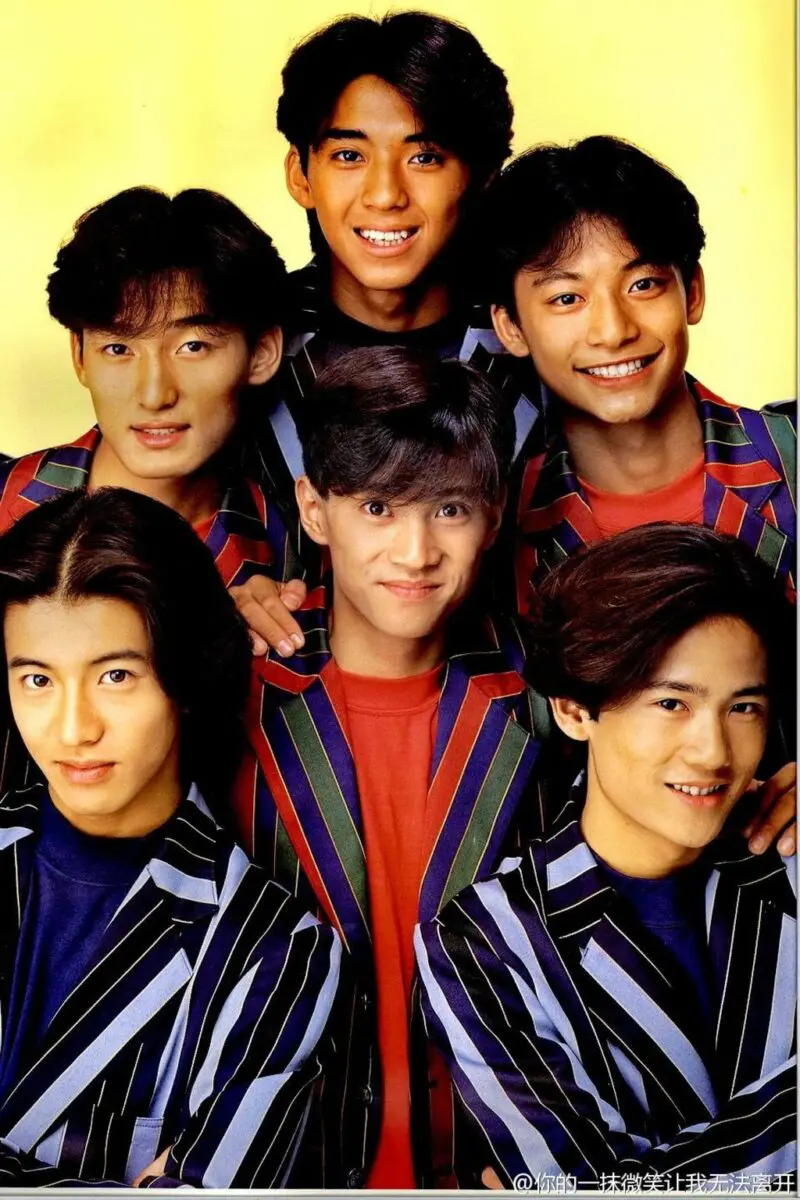The unfolding scandal involving Masahiro Nakai, a prominent figure in Japan’s entertainment industry, has sent shockwaves through the nation. As a former member of the beloved boy band SMAP, Nakai’s transition from music to television made him a household name. However, recent allegations of sexual misconduct have not only tarnished his reputation but also highlighted a deeper issue within the Japanese entertainment landscape. This article explores the implications of Nakai’s scandal, the failures of the industry, and the societal attitudes toward sexual misconduct in Japan.
For decades, the Japanese entertainment industry has been plagued by accusations of sexual abuse and misconduct, yet many continue to remain hidden in the shadows. Nakai’s case, linked to allegations of sexual assault, has drawn attention to a culture of silence that protects powerful figures while neglecting the victims. With the growing public outrage and calls for accountability, this scandal could be a turning point in the Japanese entertainment industry. It raises questions about governance, transparency, and the necessity for comprehensive reform.
The Background of the Nakai Scandal
To understand the gravity of the Nakai scandal, it’s essential to look at the context surrounding it. Masahiro Nakai, at the center of this controversy, is not just any celebrity; he is a figure who played an integral role in shaping the Japanese pop culture landscape. Following the disbandment of SMAP, Nakai transitioned into television, becoming a well-respected TV host. However, reports emerged suggesting that Nakai was involved in an alleged incident of sexual misconduct, leading to public outrage.
The details surrounding the allegations paint a troubling picture. Reports indicate that Nakai allegedly assaulted a woman at a party and later attempted to suppress her claims through a substantial financial settlement—figures reported up to $791,000. This incident echoes similar stories of abuse within the industry, particularly those related to the notorious Johnny Kitagawa, whose legacy of sexual abuse within the music industry has only recently begun to surface in the collective consciousness of the public.

The Reaction of Fans and Industry Peers
As news of Nakai’s misconduct spread, the reactions from fans and fellow entertainers poured in. Many expressed disbelief and disappointment, while others vehemently defended Nakai, arguing that he deserves due process. This division speaks volumes about the ongoing struggle within Japanese society to confront issues of sexual misconduct and accountability. For years, fans have idolized figures like Nakai without questioning the integrity of those they look up to, creating a culture where allegations can be easily disregarded.
Industry peers have also responded, some vocally condemning Nakai’s actions while others remained silent. Some members of the public deemed this response insufficient as it failed to address the systemic failures in addressing sexual misconduct within the entertainment realm. The illusion of celebrity often shields individuals from the consequences of their actions. However, as expectations for accountability rise, it becomes clear that silence is no longer acceptable.
Corporate Governance Failures
The Nakai scandal has prompted a broader examination of the corporate governance practices within Japanese media and entertainment companies. Critics argue that Fuji Television’s initial attempt to handle the situation internally demonstrates a pervasive culture of arrogance, which disregards the wellbeing of victims in favor of protecting their stars and revenue sources. The rush to minimize the damage to Nakai’s reputation, rather than addressing the allegations transparently, highlights the industry’s ongoing struggle with accountability.
This predicament is not unique to Fuji Television; it is a reflection of a broader issue throughout the Japanese entertainment industry. Companies often prioritize profit over ethical practices, creating environments where misconduct can thrive unchecked. It has taken public backlash and scrutiny from external entities for there to be any significant push towards reform. Activist shareholders have demanded third-party investigations into the allegations, signifying a turning point where companies may finally have to prioritize ethical governance.

The Role of Media and Public Opinion
Media coverage of the Nakai controversy plays a crucial role in shaping public perception. Traditional media outlets have been criticized for their insensitive handling of sensitive topics related to sexual misconduct, often sensationalizing incidents instead of providing informative insights. However, the rise of social media platforms has changed the landscape, empowering ordinary individuals to voice their concerns and challenge celebrities and corporations alike. The scandal has ignited conversations online, leading to increased scrutiny of figures within the entertainment industry.
Additionally, as various stakeholders delve into the ramifications of the Nakai scandal, there is a growing demand for responsible journalism that doesn’t shy away from uncomfortable truths. Public opinion is gradually swaying towards a more activist stance, where accountability is expected rather than overlooked. The era of unchecked celebrity status is beginning to wane, encouraging a shift towards safer and more transparent industry practices.
Implications for the Future of the Entertainment Industry
As the Nakai scandal unfolds, its implications on the future of Japan’s entertainment industry are undeniable. With increasing public scrutiny and pressure from activist groups, it is vital for the industry to recognize the need for reform. The pervasive culture of silence must be dismantled, and mechanisms should be established to protect victims and ensure their voices are heard. This involves not only corporate accountability but also a cultural shift that prioritizes respect and integrity over profit and celebrity status.
In light of these events, there is a growing realization that the entertainment industry must evolve to retain public trust. As fans demand transparency and accountability, entertainers and media companies will need to take these concerns seriously. The future hinges on acknowledging past mistakes and fostering a culture that embraces respect across all levels of the industry.

Victims’ Voices and the Call for Change
Crucially, the voices of victims are at the heart of this scandal. As the Nakai allegations come to light, it is essential for the industry to recognize that silence can be as harmful as the acts themselves. Advocates for victims assert that survivors must be empowered to speak up without fear of retribution, emphasizing the importance of safe reporting environments. Ensuring that the entertainment industry can support and protect victims from further harm is pivotal in creating a culture of courage and resilience.
Moreover, the call for change extends beyond Nakai and his situation; it is a fundamental shift in how the entertainment industry operates. From instituting proper training around harassment to creating visible processes for reporting grievances, change must manifest in tangible ways. It is essential to ensure that future generations of entertainers can navigate their careers without fear or intimidation.
Conclusion: A New Dawn for the Japanese Entertainment Industry?
As the scandal surrounding Masahiro Nakai continues to unfold, the question remains: will this serve as a catalyst for genuine change in Japan’s entertainment industry? The awareness surrounding sexual misconduct has reached a tipping point, revealing the urgent need for reform. While the path to accountability may be fraught with obstacles, the momentum toward change may finally be gathering. The Nakai scandal signifies a broader awakening, one that calls for transparency, respect, and accountability within an industry that has long overlooked such issues.
The ongoing discourse calls upon stakeholders to embrace this new initiative toward a safer and more respectful environment for all, ensuring that the lessons learned pave the way for a better future in Japanese media and entertainment.
Hi, I’m Sarah, a 30-year-old journalist with a passion for storytelling and uncovering the truth. I strive to bring important issues to light and connect with my audience through compelling narratives.



